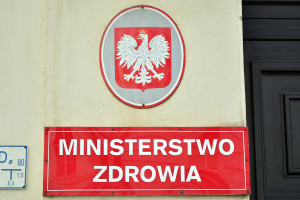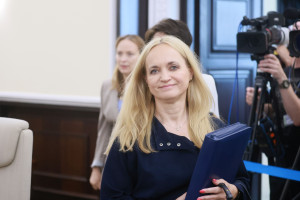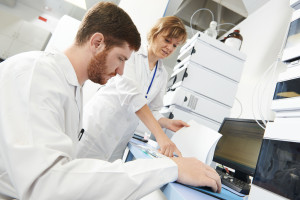"A ban on patents on life will always bring people to the streets." The petition changed Austria.

- Few people are interested in topics related to intellectual property law
- It is a different story when they concern biotechnology, for example GMOs and genetically modified food or embryo research.
- Why is this happening? "Because biotechnology, and especially the issue of biotechnology and patenting, directly addresses fundamental needs and concerns, such as access to food, including the freedom to grow one's own plants. Furthermore, biotechnology touches on ethical and religious issues, as well as communication," says Dr. Stefan Harasek, President of the Austrian Patent Office.
- It also highlights the importance of dialogue and proper communication with society when introducing changes in the field of biotechnology.
- The lack of such communication prevented the first attempt to implement the provisions of the EU Directive on the legal protection of biotechnological inventions in Austria.
- Only the establishment of the Biopatent Monitoring Committee, which became a forum for open debate in the field of biotechnology, with the participation of various stakeholders, including non-governmental organizations, paved the way for the transposition of the EU directive
Typically, topics related to intellectual property law, which are mainly the domain of specialists and stakeholders with established positions, arouse little public interest.
But it is enough for the topic of GMOs and genetically modified food, embryo research, or vaccines and drugs produced using cell lines derived from human material to arise, and then biotechnology is almost always able to attract much greater public attention than other areas of intellectual property law and evoke strong emotions on social, ethical, and religious grounds.
And this isn't limited to Poland. Dr. Stefan Harasek, President of the Austrian Patent Office, recalled during the conference "Biotechnological innovation for a sustainable future" organized by the Polish Patent Office on the occasion of the Polish Presidency of the Council of the EU (Krakow, May 20-21, 2025) that topics such as "ban on patents on life" and "freedom to grow one's own plants" evoke a huge public response. In such situations, participating in the public debate on biotechnology remains a challenge for patent offices.
"I think we're all familiar with the photos from demonstrations against the patentability of biotechnological innovations and the catchy slogans like no patents on seeds, or a ban on patents on human genes, or simply no patents on life. The combination of biotechnology and patents has the potential to draw people to the streets around the world, " he said, illustrating them with photos from demonstrations in Germany, India, and the US.
Why is the situation in biotechnology so different compared to other IP topics?
"Because biotechnology, and especially the issue of biotechnology and patenting, directly addresses fundamental needs and concerns, such as access to food, including the freedom to grow one's own plants . Furthermore, biotechnology touches on ethical and religious issues, as well as communication. This often leads to highly emotional debate. Once it becomes public, it is difficult to return to a substantive discussion," said the expert.
Therefore, before changes in this area begin, the IPO's role is also to propose and prepare their projects. "We need to have a sense and understanding of what is acceptable to the general public and what has a realistic chance of being supported," said Dr. Harasek.
The Story of One PetitionThe head of the Austrian patent office knows what he's talking about. In 1998, Austria suffered a resounding failure in its attempt to implement the EU biopatent directive. The first attempt to transpose the directive into national law encountered strong social and political resistance.
Directive 98/44/EC of the European Parliament and of the Council on the legal protection of biotechnological inventions was adopted in 1998. Its aim was to harmonise the rules on the legal protection of biotechnological inventions.
It allowed, among other things, the patenting of inventions concerning products (e.g., microorganisms, plants, animals) or processes (e.g., production methods, transformation of biological material), provided that they met the criteria of novelty, inventive step, and industrial applicability. However, it excluded inventions deemed unethical or contrary to public policy, as well as those based solely on natural phenomena, such as crossbreeding or selection.
Biotechnology issues were gaining momentum at that time, prompting the EU to harmonize regulations. At the same time, the topic of genetic modification (and also, for example, the construction of nuclear power plants) encountered significant resistance from some European societies.
When the Austrian government was preparing to implement the biopatent directive, citizens rushed to the polls to vote in favor of a referendum petition expressing their opposition . The Volksbegehren is a specific institution in Austria's constitutional order that allows citizens to impose a mandatory review of their proposal by Parliament if they receive the support of at least 100,000 signatures. In 1997, a petition on genetic engineering was signed by over 1.2 million people (over 21% of Austrians), with the slogan "Austria free from GMOs in agriculture and food production."
It made three demands:
- ban on the production and sale of genetically modified food and agricultural products in Austria
- ban on field trials of genetically modified crops in Austria
- prohibition of patenting living organisms.
The turnout was unexpectedly high – the second highest in the history of national petitions in Austria and the highest in the history of a grassroots initiative. This forced a swift response from the government, which at the time consisted of Austria's two main parties: the left-of-centre Social Democrats (SPÖ) and the right-of-centre Austrian People's Party (ÖVP).
Then-Chancellor Victor Klima convened a summit, inviting representatives of non-governmental organizations to discuss their demands. These included a ban on local production of food containing genetically modified ingredients, tightening procedures for approving genetic experiments, and increasing the powers of ethics committees involved in the procedures. Producers of genetically modified products were to be held accountable if their products caused environmental damage or health problems.
It's worth talkingThe political and social climate of the time certainly contributed to this turn of events.
- It was one of the most successful petitions - the head of the Austrian patent office recently recalled.
Moreover, the turn of the millennium was fast approaching: "The year 2000 seemed synonymous with modernity. We underestimated the influence of political decision-makers. All political parties, from left to right, were divided on this issue. Even the argument that adapting national law to the directive was not optional, but necessary, was unconvincing."
In short, almost the entire political spectrum opposed implementing the directive's provisions, regardless of the obligations arising from EU membership. Austria had joined the EU less than two years earlier, in 1995.
In addition, the then ruling coalition was unstable and the initiators of the entire action – mainly non-governmental organisations (NGOs) led by the environmental groups Greenpeace Austria and Global 2000 – also had support from among politicians.
In the summer of 2003, the European Commission brought proceedings against eight EU Member States, including Austria, before the Court of Justice of the European Union (CJEU) for failing to implement the directive. Public debates on the patentability of biotechnology inventions also took place in other countries.
The infringement procedure initiated by the European Commission spurred Austrian authorities into action . A key solution was the establishment of the Biopatent Monitoring Committee, which became a forum for open debate on biotechnology, involving various stakeholders, including non-governmental organizations.
This committee facilitates consultations prior to legislative changes and continues to function as an effective platform for testing various solutions. It also prepares reports for the Austrian Parliament to ensure that ethical, legal, and social issues are taken into account in the context of biopatents.
- What was initially a failure ended in success thanks to social dialogue - emphasized Dr. Harasek.
Copyrighted material - reprint rules are specified in the regulations .
rynekzdrowia













